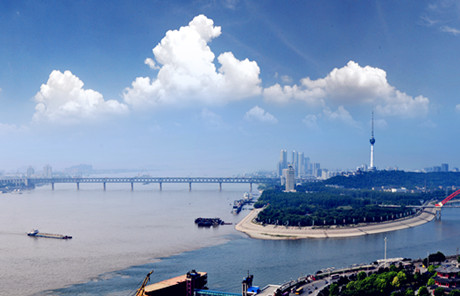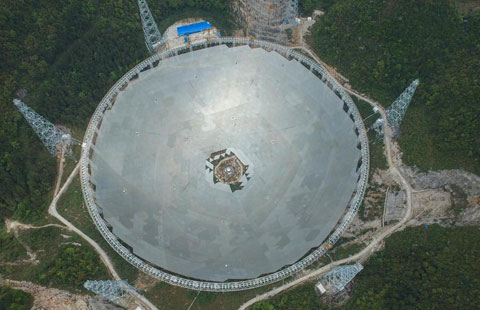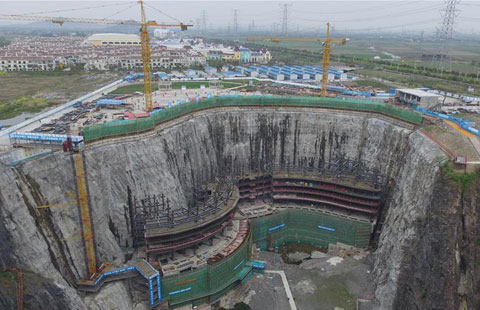

|
Dubbed "the city with hundreds of lakes", Wuhan tops the nation in terms of per capita urban freshwater resources. |
|
People crowd a Wuhan shopping hub, where domestic and international branded products are on offer. |
Wuhan, capital of Central China's Hubei province, is emerging as an attractive investment destination due to its extensive transportation infrastructure, abundant resources and rich talent pool.
The city has been the largest transportation hub in the Chinese hinterland for centuries.
Located at the intersection of the Yangtze and Hanjing rivers, Wuhan serves as a central link among all of China's regions. About 85 percent of China's population lives within a radius of 1,000 kilometers from the city.
Its importance as a transportation hub has been further enhanced in modern times.
The city is now at the hub of China's railway and highway systems.
With the opening of the Wuhan-Guangzhou high-speed railway, travel time between the two cities - about 1,000 km away - has been reduced to about three hours. And another high-speed railway, scheduled to be completed at the end of this year, will shorten the travel time to Beijing - about 1,200 km away - to four hours.
The city's air hub is the fourth largest in the nation, behind only Beijing, Shanghai and Guangzhou. Its Tianhe International Airport has more than 20 air routes to overseas regions.
Human resources
Wuhan also boasts high-quality human resources as well as a strong research and development capacity.
It has about 80 universities, where around 1.18 million students were registered last year.
As of the end of 2011, the city was home to 100 high-tech research institutions, which include 80,000 researchers and technicians.
Moreover, it has 20 national laboratories and 20 national R&D centers.
A total of 59 academicians of the Chinese Academy of Sciences and Chinese Academy of Engineering are now working at these universities and institutions in Wuhan.
The city's high-tech industries have shown strong growth in recent years.
For instance, the Wuhan East Lake High-tech Development Zone - dubbed the Optics Valley of China - is one of the nation's leaders in the research of technologies related to optical communications, biology, laser, micro-electronics and new materials.
Another thing attractive to investors is that the city has rich land resources. Its land area is about 8,500 sq km, with urban area accounting for less then one-fourth of its total, meaning there is ample space for industrial development.
Dubbed "the city with hundreds of lakes", Wuhan also has plentiful water resources. It tops the nation in terms of per capita fresh water resources.
Among the 200-odd lakes in Wuhan, the 33 sq km East Lake is China's largest urban freshwater lake.
Surrounded by forests, rivers and hills, the city provides a magnificent landscape as well as a healthy living environment.
Life is easy for investors, employees and residents as well.
Wuhan has comprehensive medical facilities, including many well-equipped hospitals.
Foreign residents can enroll their children in one of Wuhan's many international schools.
The city has 14 five-star luxury hotels and a lot of shopping malls selling both domestically and internationally renowned brands.
"Life in Wuhan is pleasant, with less cost and less pressure, which is very attractive to young talent," said an employee of McQuay Air Conditioning and Refrigeration (Wuhan) Co.
Thanks to its strategic location and advantages in transportation and human resources, the city is becoming a popular destination for foreign and domestic investment.
The city government has set up a special office for investment affairs last year to provide more efficient, convenient and professional services.
It also plans to organize a series of high-profile trade fairs this year, trying to introduce large projects that have great influence over the city's industrial upgrades.
 |
| The intersection of Yangtze River and Han River |
haonan@chinadaily.com.cn
(China Daily 10/15/2012 page24)







